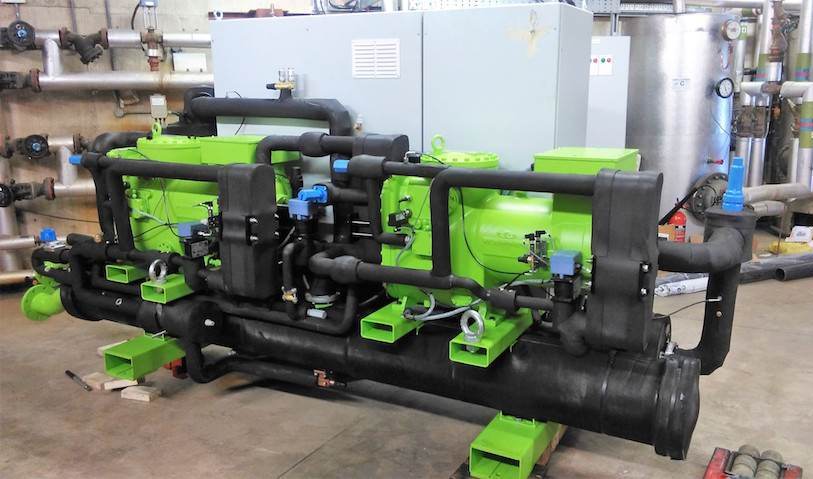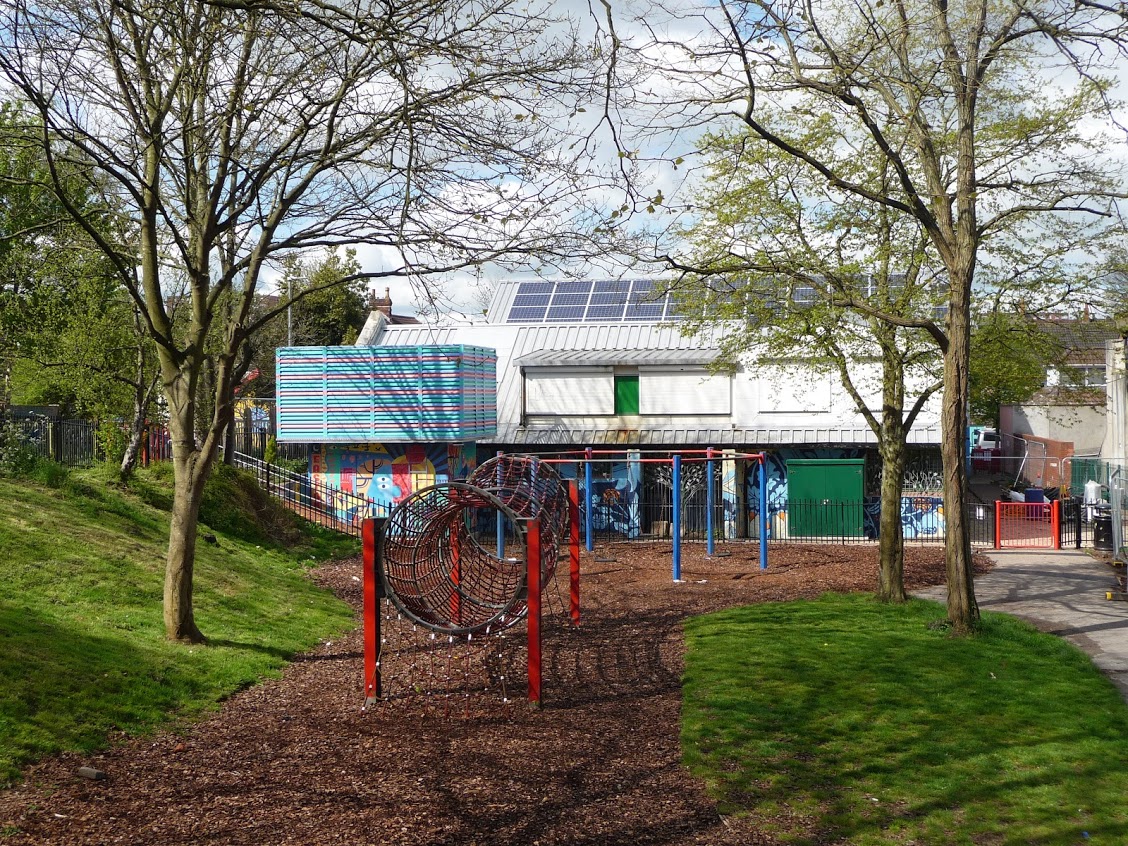Heat Pumps in District Heating
Heat Pumps in District Heating, published by DECC in February 2016, recognises the value of using heat pumps in District Heating to lower carbon emissions in place of central gas boilers or gas based CHP.
The full report Heat Pumps in District Heating runs to 138 pages. The following is an extract of some of the key findings:
- Alongside a decarbonising grid, integrating heat pumps into district heating offers large CO2 emissions reduction potential.
- The analysis showed that incorporating heat pumps into district heating schemes has the potential, in the context of a rapidly decarbonising electricity grid, to offer large CO2 savings relative to district heating based on either gas-CHP (for large schemes) or gas boilers (for small schemes). Assuming the current trajectory towards low carbon electricity generation, we found CO2 savings versus gas burning schemes in the range 48-84%.
As may be expected from simple thermodynamic arguments, we showed that the CO2 savings are greater where the following scheme characteristics are combined:
- Heat pumps provide a larger fraction of the heating
- Heat pumps operate with a lower source-sink temperature difference, leading to increased efficiency
- Network thermal losses are lower, especially for lower temperature distribution networks with building integrated heat pumps
As a result, we found that of the various configurations studied, low or medium-temperature networks based entirely on heat pumps offer the greatest CO2 savings potential.
It is important to note that heat pumps bring potential additional benefits that may shift the economic balance in their favour compared to the alternatives. In particular, the ability to provide cooling as well as heating has been found to be a key driver for the use of heat pumps in heat networks.

The speed of replacing gas with heat pumps depends on financial support
The extent to which heat pumps replace conventional heating plant will depend on the balance between environmental and economic objectives.
In the four core scenarios modelled, we found the cost of CO2 savings for heat pump schemes versus gas based systems to lie in the range £133-£227/tCO2. This suggests that if the large CO2 savings on offer are to be achieved, there will need to be a continuation of financial support for renewable heat or interventions to ensure a high effective price of carbon emissions.
Further cost savings arise when both heating and cooling are required
However, further cost savings could be achieved by using heat pumps in schemes where both heating and cooling are required.
Cooling demand is often a driver for the installation of heat pumps over other technologies in heat networks. Using heat pumps for both heating and cooling can help increase the thermodynamic efficiency of a system if heating and cooling loads are balanced, either instantaneously or seasonally.
The drive to low carbon heating implies the electrification of heat networks
Although DECC is encouraging a move toward gas-powered district heating on the grounds that this can use lower carbon than using individual gas boilers in each building, the longer term logic points away from using combustion towards using heat pumps in each building – with zero on site carbon emissions.
Decarbonising the grid will lead to zero carbon heating systems – and zero-carbon cooling too.
Demand response cuts cost of heat pump electric heating
A further advantage of electrifying heating and cooling is that there is a major opportunity to take advantage of "demand response": when heating time is diverted from "peak" to "off-peak" hours the price of heating falls rapidly and relieves the grid of pressure and stress.
Heat Networks
ICAX is involved in the design and installation of the following district heating schemes based on heat pumps:
- Balanced Energy Network: an open loop aquifer system at London South Bank University
- Community Heating Southwark: a set of open loop aquifer systems in Southwark
- Owen Square District Heating: a closed loop system at Easton, Bristol, including summer recharge.
See also Heat Networks Investment Project
See also Fifth Generation Heat Networks
See also Heat Pump Retrofit in London Carbon Trust report for the GLA

